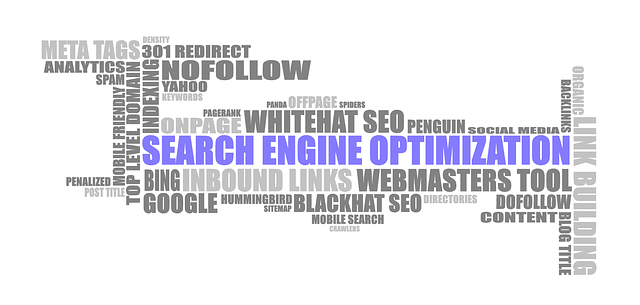The Future of SEO Conference underscored the necessity of structured data for achieving top search engine rankings in today's digital era. Implementing structured data markup provides search engines with essential content insights, enhancing visibility and user experience—critical factors in SEO. This evolution is driven by search algorithms that now prioritize structured data for efficient navigation through complex information. Structured data, including Schema markup, enables advanced features like rich snippets, improves content understanding, and drives traffic to e-commerce platforms. Embracing structured data is crucial for websites to stay competitive in the future of SEO, as highlighted at the conference. Effective use leads to improved rankings, higher click-through rates, and better overall performance. Advanced analytics are vital for optimizing structured data initiatives and shaping effective SEO strategies.
Structured data is transforming the way search engines understand and present content, making it a cornerstone of modern SEO. In this comprehensive guide, we explore the evolving landscape of search algorithms and their increasing preference for structured data. From enhanced user experiences to Google’s behind-the-scenes utilization, we delve into the benefits of schema markup and prepare for the future of SEO at the upcoming Future of SEO Conference. Get ready to unlock advanced features, ensure long-term success, and stay ahead in a structured data-dominant era.
Understanding Structured Data: The Cornerstone of Modern SEO

In today’s digital landscape, understanding structured data is no longer an optional consideration for businesses aiming to excel in search engine optimization (SEO). Structured data provides a clear and organized framework that allows search engines like Google to interpret and display information more effectively. This, in turn, enhances online visibility and improves user experiences, which are key factors in the ever-evolving Future of SEO Conference.
By using structured data markup, website owners can provide critical details about their content—including titles, descriptions, dates, and categories—to search engine crawlers. This enables search engines to better understand the context and relevance of web pages, leading to more accurate indexing and higher rankings. As SEO continues to advance, embracing structured data is not just a best practice but an essential strategy for staying competitive in the digital arena.
The Evolution of Search Algorithms and Their Preference for Structured Data

The evolution of search algorithms has been closely tied to the rise of structured data as a preferred format for information retrieval. In the early days, search engines relied heavily on keyword matching and ranking based on frequency. However, with the increasing complexity of online content, these algorithms struggled to understand context and semantic relationships. This gap led to the development of more sophisticated search techniques that could interpret data in a structured manner.
Structured data provides clear and organized information, allowing search algorithms to navigate through vast datasets efficiently. By marking up content using schema.org or similar standards, web developers enable search engines to extract relevant facts and entities, enhancing the accuracy and relevance of search results. As we move forward towards the Future of SEO Conference, the emphasis on structured data is expected to intensify, driving further advancements in search algorithm capabilities and user experience.
Enhanced User Experience: How Structured Data Improves Navigation and Engagement

Structured data plays a pivotal role in enhancing user experiences, especially as we look ahead to trends discussed at the Future of SEO Conference. By organizing content into easily digestible, machine-readable formats, search engines can better understand context and deliver more relevant results. This translates into improved navigation for users, who can find what they need faster and more efficiently.
When websites implement structured data effectively, it not only streamlines information architecture but also increases engagement. Rich snippets and enhanced search results, made possible by structured data, capture users’ attention with visuals, summaries, and interactive elements. This captivates visitors and encourages them to explore deeper into the site, fostering a more dynamic and immersive experience.
Behind the Scenes: Google's Utilization of Structured Data in Indexing and Ranking

At the core of Google’s search algorithms lies a complex web of data processing, and structured data plays a pivotal role in this intricate dance. When we talk about structured data behind the scenes at Google, it refers to the organized format of information that helps search engines like Google understand content better. This is where the magic happens; by marking up content with structured data, websites provide Google with valuable insights into their content’s meaning and context.
Google’s utilization of structured data goes beyond mere indexing; it’s a critical factor in ranking web pages. By interpreting this structured data, Google can surface the most relevant results for users’ queries, ensuring that the search engine delivers accurate and meaningful responses. As we look ahead to future trends in SEO, as discussed in recent conferences like The Future of SEO Conference, structured data is poised to remain a powerful tool for content creators and marketers, enabling them to enhance their online visibility and provide more valuable experiences to users.
Unlocking Advanced Features with Schema Markup: A Case Study

Schema markup, a powerful tool for structured data, is transforming how search engines understand and display information. By providing detailed context about web pages, it unlocks advanced features that enhance both user experience and SEO strategies. A notable case in point is the integration of rich snippets, which offer enhanced search results with ratings, reviews, and interactive elements. This direct communication with search engines not only improves visibility but also drives more qualified traffic, as demonstrated by successful implementations at leading e-commerce platforms.
At the Future of SEO Conference, experts highlighted how schema markup can drive innovation in content marketing and link building. By structuring data effectively, businesses can create more engaging content that resonates with users and search algorithms alike. This strategic approach promises to keep content relevant and valuable even as search engines evolve, ensuring a competitive edge in the ever-changing digital landscape.
Future-Proof Your Website: Preparing for SEO Trends in a Structured Data-Dominant Era

In the rapidly evolving digital landscape, structured data is no longer a nice-to-have but an essential component for any website aiming to thrive in the future of SEO. As search engines like Google continue to favor structured data, websites that implement it effectively will gain significant advantages over their unoptimized counterparts. This shift is particularly evident in the context of the Future of SEO Conference, where industry experts consistently highlight structured data as a key trend shaping the field.
To prepare for this data-driven era, website owners and marketers must embrace structured data markup and ensure their sites are optimized for search engines. By providing rich snippets, enhanced knowledge graphs, and better comprehension of content intent, structured data empowers search engines to deliver more relevant results to users. This, in turn, can lead to increased click-through rates, higher rankings, and improved overall performance, solidifying your website’s position as a trusted authority in your niche long after the latest SEO trends have emerged.
Measuring Success: Analytics Tools to Track Structured Data Performance

Measuring success is a crucial aspect of any data-driven strategy, and structured data isn’t an exception. With the right analytics tools, businesses can track the performance of their structured data initiatives and gain valuable insights. These tools provide metrics on data quality, accessibility, and utilization, helping organizations understand how well their structured data is serving their SEO efforts.
At the Future of SEO Conference, experts emphasized the importance of using advanced analytics to stay ahead in a rapidly evolving digital landscape. By leveraging these tools, businesses can optimize their data structures, improve search engine rankings, and ultimately enhance user experiences. From identifying high-performing content to pinpointing areas for improvement, structured data analytics plays a pivotal role in shaping effective SEO strategies.
